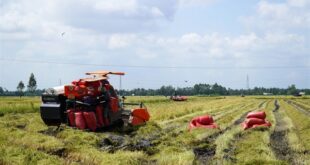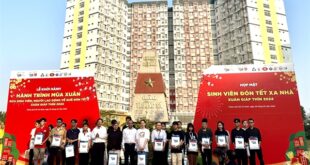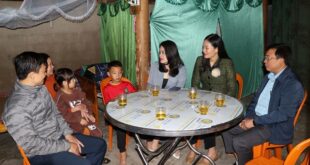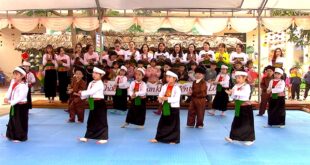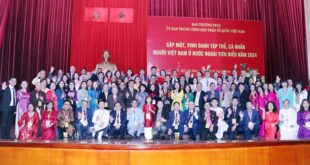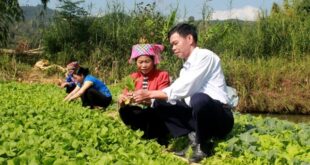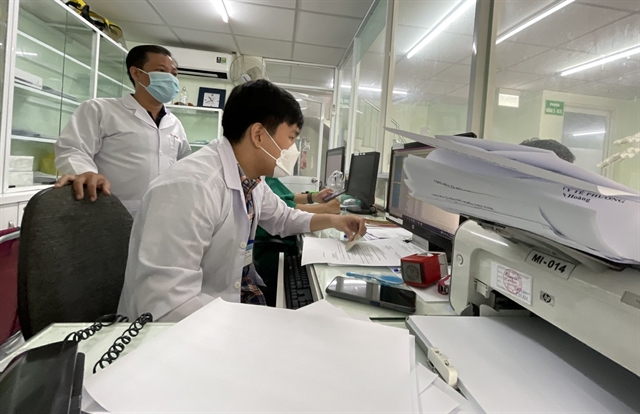
Thu Hằng
HCM CITY — When her four-year-old son tested positive for the novel coronavirus, Bùi Thị Ngọc Thúy took him to the Cát Lái Ward Health Station in Thủ Đức City.
The 36-year-old mother needed medical advice on caring for her son while he was quarantined at home.
Doctor Dương Nguyễn Hoàng Lam carefully explained things to Thúy and she left the station relieved that she had received good, clear advice.
Lam is a fresh graduate from the Phạm Ngọc Thạch Medical University who began his practice at the station last month, performing several tasks revolving around the pandemic response, advising and treating COVID-19 cases in Cát Lái ward.
“My daily tasks at the station include conducting medical declarations and management of COVID-19 cases as well as providing consultations on home-based care and treatment for COVID-19 cases,” Lam said.
“COVID-19 patients with mild symptoms will receive medicines and those with severe symptoms will first get a medical examination before being transferred to hospitals,” he added.
The young doctor spends three days a week working at the health station and four days practicing at the Lê Văn Thịnh Hospital’s intensive care unit.
“I am instructed by experienced doctors at the health station and the intensive care unit in practicing medicine safely and I gain more knowledge and skills.
“There is a huge gap between the medical school curriculum and practice at the health station and the hospital,” Lam said.
He voluntarily joined a COVID-19 pandemic rapid response team of the Thủ Đức City Health Centre from July to September last year.
After completing graduation exams at the medical school in November, he continued to work voluntarily as part of the frontline force against the pandemic before taking on his current assignment as a medical practitioner at the health station.
“It is a great opportunity for me to gain practical medical experience when I am directly involved at a health station where the workload is high.
“As a volunteer in the pandemic response for months, I understand deeply the important role of grassroots healthcare in the pandemic response and burnout that happens among healthcare workers here. I really hope that I can deliver community-oriented primary care during my practice,” Lam said.
Like Lam, Lê Quốc Tri works at the Ward 26 Health Station in Bình Thạnh District to practice and gain hands-on experience after graduating from the Phạm Ngọc Thạch Medical University.
“I have gained an overall view on how to care for and treat COVID-19 patients under home quarantine and treatment; as well as COVID-19 response programmes and vaccination campaigns,” Tri said.
“I also work at the Gia Định People Hospital under the supervision of doctors there for three days a week.”
Lam and Tri are two of 297 fresh graduates from the Phạm Ngọc Thạch Medical University taking part in a new 18-month practice model that embeds them in grassroots health stations for twelve months. After a year they will work at hospitals for six months before obtaining an official license.
Previously, doctors had to pass their exams and intern at any hospital for 18 months to get a license. Now, part of work has to be done with grassroots level healthcare centres.
This move has come as a response to a shortage of medical workers at grassroots level health centres, resulting in major hospitals getting overloaded.
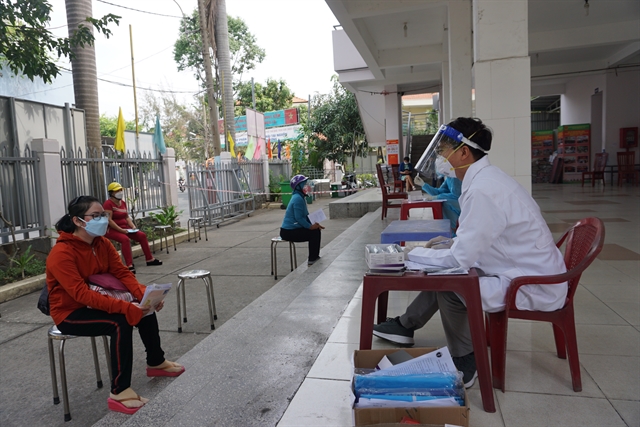
Primary healthcare inspiration
The new medical internship model launched by the HCM City’s Department of Health is part of efforts to increase the capacity of grassroots healthcare facilities that have suffered a prolonged shortage of medical workers, said director Tăng Chí Thượng.
The COVID-19 pandemic has intensified burnout among healthcare workers at grassroots healthcare facilities, he said.
“Young doctors learn to deliver community-oriented primary care as they participate in clinical activities at the health stations.
“They can understand how grassroots healthcare addresses the health needs of communities and provides primary health care services under the supervision of doctors.”
The department is hoping that this experience will inspire young doctors to choose careers in primary healthcare, he said.
The city plans to offer a stipend of VNĐ60 million (US$2,600) to each doctor during their 12-month internship at grassroots level health stations, he added.
According to the health department, the medical workers to patients ratio is 2.31 per 10,000 at the ward and commune levels in HCM City, which is lower than the the national average of 7.42.
With just 5-10 medical workers, a health station in a ward or commune has to provide primary healthcare for more than 50,000 residents, besides implementing around 19 national healthcare programmes. In some wards and communes, the residents’ density is around 100,000 people each.
The burnout at such stations saw more than 1,000 medical workers quit their jobs last year.
Retaining medical workers
Dr. Hồ Minh Hoàng, head of the Ward 26 Health Station in Bình Thạnh District, said that under the new model, young doctors gain valuable experience in caring for and treating COVID-19 patients as well as implementing national programmes.
Assoc. Prof. Nguyễn Thanh Hiệp, rector of the Phạm Ngọc Thạch Medical University, said that with their enthusiasm and compassion, young doctors will help increase the capacity of grassroots healthcare facilities which are in dire need of the medical workers.
Preferential policies in remuneration and better allowances for medical staff should be given priority to attract and retain qualified medical workers at grassroots health stations, he said.
Young doctors at health stations should receive regular professional assistance from doctors at hospitals and a strong coordination between health stations and hospitals is needed to ensure continuity of care for patients, he added.
Tri has been inspired by his experience so far: “I appreciate the opportunity to work at the station which provides hands-on experience that I didn’t learn in medical school. I now understand the responsibility involved in providing healthcare care services to patients.
“I think I will continue to work at the station after I complete the 18-month internship.” —VnExpress News
- Reduce Hair Loss with PURA D’OR Gold Label Shampoo
- Castor Oil Has Made a “Huge” Difference With Hair and Brow Growth
- Excessive hair loss in men: Signs of illness that cannot be subjective
- Dịch Vụ SEO Website ở Los Angeles, CA: đưa trang web doanh nghiệp bạn lên top Google
- Nails Salon Sierra Madre
 VnExpress News The News Gateway of Vietnam
VnExpress News The News Gateway of Vietnam
